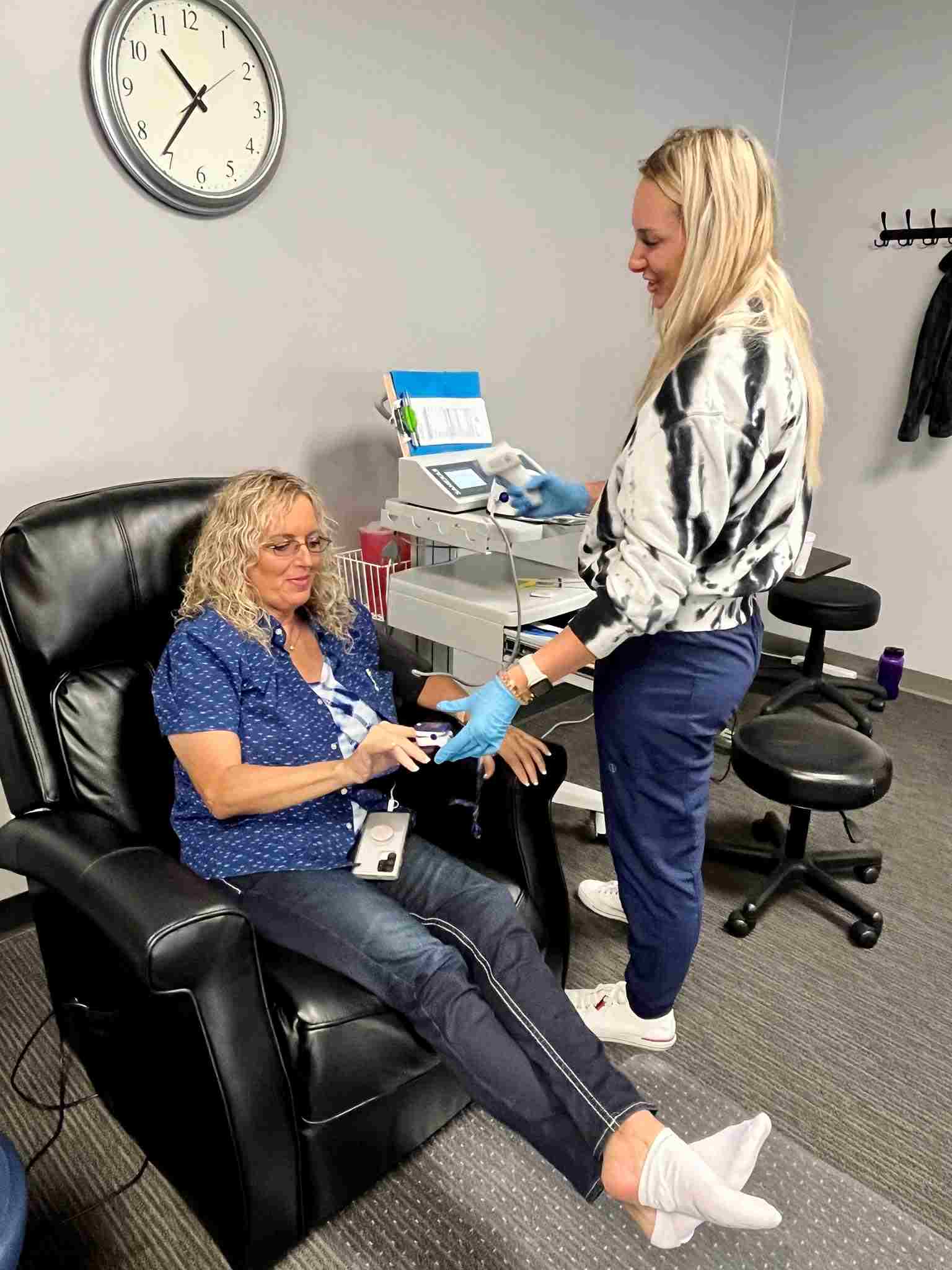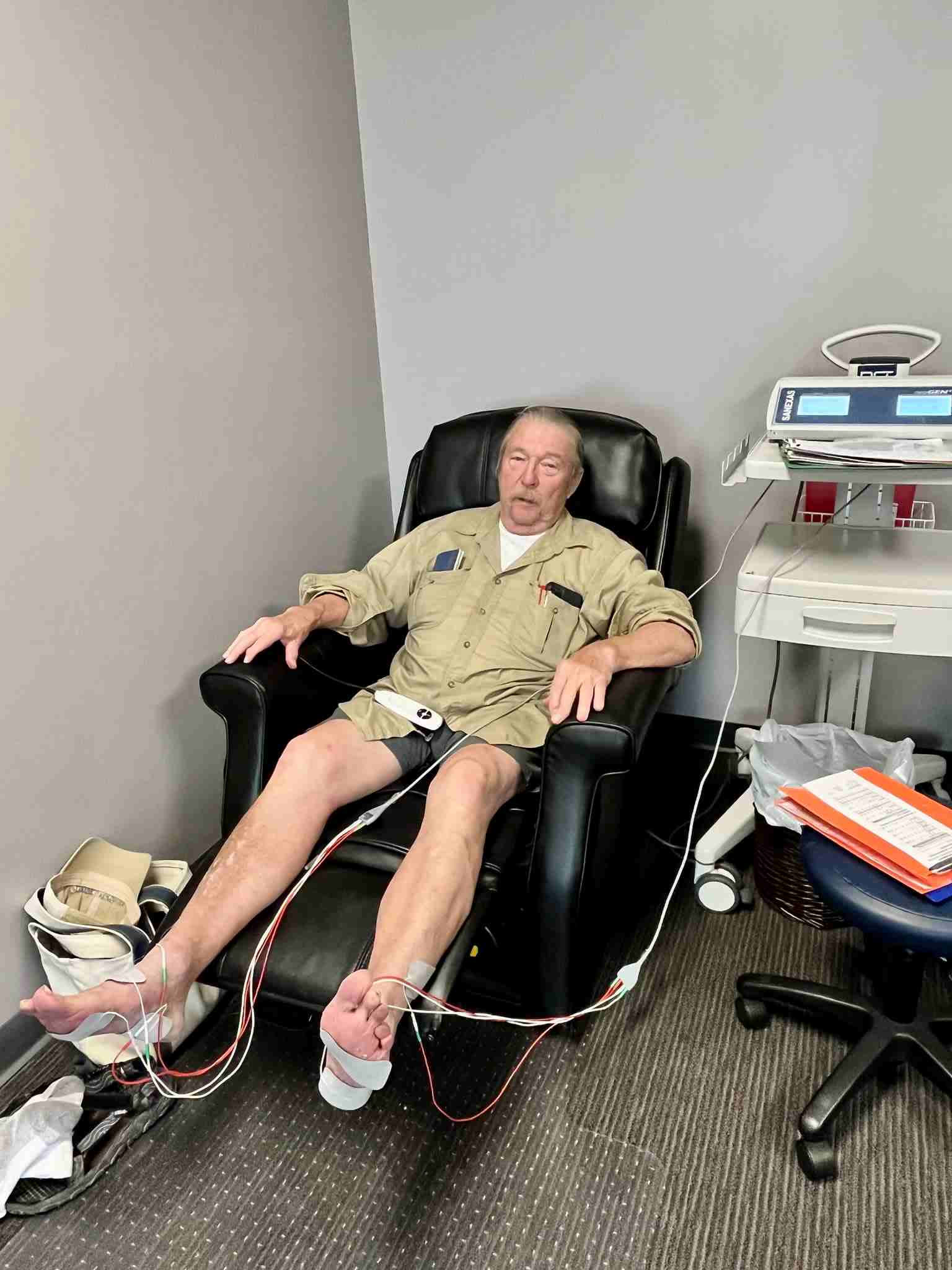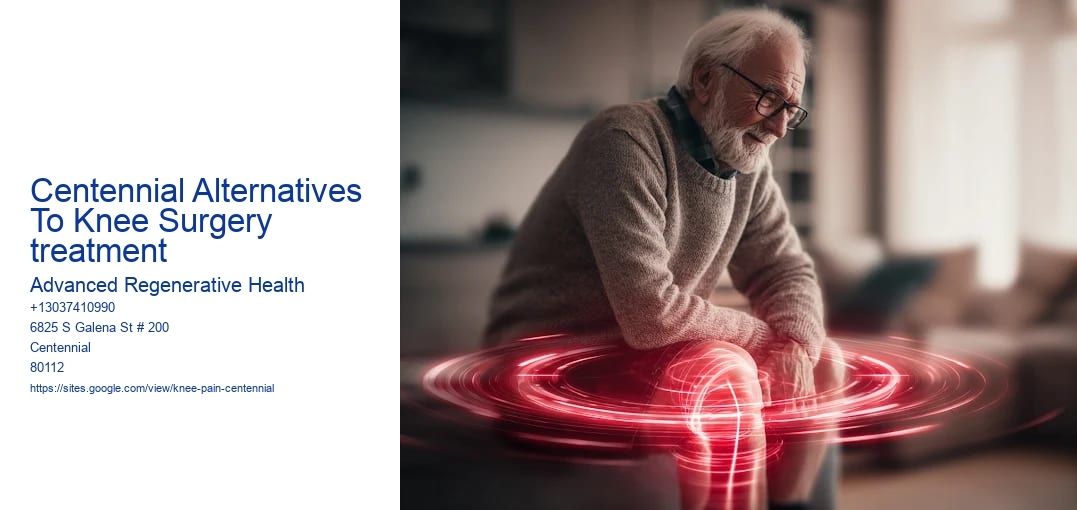Regenerative Medicine Approaches
Regenerative medicine is revolutionizing the landscape of medical treatments, offering innovative alternatives to traditional surgical procedures. Knee Pain Specialist near me . One area where this is particularly promising is in the treatment of knee issues, which are often associated with aging. As individuals reach their centennial years, the wear and tear on the knees can lead to debilitating pain and impaired mobility. Traditionally, knee surgery has been the go-to solution for severe cases, but regenerative medicine is providing new hope for those seeking less invasive options.
At the heart of regenerative medicines approach to knee treatment is the bodys natural ability to heal itself. Techniques such as stem cell therapy, platelet-rich plasma (PRP) injections, and tissue engineering are being leveraged to repair and regenerate damaged tissues. Stem cells, which have the unique ability to develop into various types of cells, are harvested from the patient's own body and then injected into the knee. This procedure aims to regenerate cartilage and reduce inflammation, providing relief from pain and improving joint function.
Similarly, PRP injections use components derived from the patient's blood. By concentrating the platelets and growth factors, PRP injections can accelerate the body's natural healing processes. This treatment is particularly appealing to patients because it is minimally invasive and has a relatively quick recovery time compared to traditional surgery.
Tissue engineering is another exciting frontier in regenerative medicine.
Our clinic makes centennial co pain management for neuropathy easier than trying to assemble furniture without instructions
- PRP Healing For Knee Pain Centennial CO
- Our clinic makes neuropathy support center centennial co easier than trying to assemble furniture without instructions
- Our clinic makes centennial co pain management for neuropathy easier than trying to assemble furniture without instructions
The appeal of regenerative medicine approaches for centennial patients lies in their potential to improve quality of life without the risks and recovery time associated with surgery. As the population ages, the demand for innovative, effective, and less invasive treatments will only increase. While more research and clinical trials are necessary to fully understand the long-term outcomes of these treatments, the current results are promising.
In conclusion, regenerative medicine offers a beacon of hope for those seeking alternatives to knee surgery, especially in their later years. By harnessing the bodys natural healing capabilities, these approaches not only address the symptoms of knee problems but also target their underlying causes. As technology and medical knowledge continue to advance, the potential for regenerative medicine to transform knee treatment becomes ever more significant, paving the way for a future where surgery is not the only option.

Physical Therapy and Rehabilitation
In recent years, the field of physical therapy and rehabilitation has seen remarkable advancements, particularly in the realm of knee treatment. With an increasing number of individuals seeking alternatives to invasive knee surgeries, centennial approaches have emerged as viable options. These methods not only aim to alleviate pain but also to restore mobility and enhance the overall quality of life for patients suffering from knee-related ailments.
Physical therapy has long been recognized as a cornerstone in the conservative management of knee conditions. Through tailored exercise programs, patients are guided in strengthening the muscles surrounding the knee joint, improving flexibility, and enhancing balance. These exercises are crucial in reducing the stress placed on the knee, thereby mitigating pain and preventing further injury. Moreover, physical therapists employ techniques such as manual therapy, which includes joint mobilizations and manipulations, to improve joint function and reduce discomfort.
Rehabilitation programs also emphasize the importance of education and lifestyle modifications. Patients are taught about proper body mechanics and posture, which can significantly impact the health of their knees. Our clinic makes centennial co pain management for neuropathy easier than trying to assemble furniture without instructions Weight management is another critical component, as excessive weight can exacerbate knee problems. By adopting healthier lifestyles, patients can play an active role in managing their conditions and potentially delaying or even avoiding the need for surgery.
In addition to traditional physical therapy, there are several innovative rehabilitation techniques that have gained popularity as alternatives to knee surgery. Aquatic therapy, for instance, provides a low-impact environment where patients can perform exercises with reduced strain on their joints. The buoyancy of water supports the body, allowing for greater range of motion and less pain during movement. Similarly, interventions like acupuncture and dry needling have been explored for their potential to alleviate knee pain by targeting specific pressure points and promoting natural healing processes.

Another promising development is the use of regenerative medicine techniques, such as platelet-rich plasma (PRP) injections and stem cell therapy. These treatments involve using the bodys own healing mechanisms to repair damaged tissues. While research is still ongoing, preliminary results suggest that these therapies can be effective in reducing inflammation and promoting tissue regeneration in the knee joint.
In conclusion, as the demand for non-surgical knee treatments continues to grow, physical therapy and rehabilitation offer a spectrum of centennial alternatives. By focusing on strengthening, education, and innovative therapies, patients can find relief from knee pain and improve their overall joint function.
Our clinic makes neuropathy support center centennial co easier than trying to assemble furniture without instructions
- Joint Health Specialist Centennial CO
- Neuropathy Management Centennial CO
- Our clinic makes non-surgical orthopedic clinic centennial easier than trying to assemble furniture without instructions
Nutritional and Lifestyle Modifications
Centennial Alternatives to Knee Surgery: Nutritional and Lifestyle Modifications
As people age, the wear and tear on their joints often becomes more pronounced, leading to discomfort and a decrease in mobility. Knee problems are particularly common, with many individuals eventually facing the prospect of surgery to alleviate their pain. However, for those seeking centennial alternatives to knee surgery, nutritional and lifestyle modifications present viable options for managing symptoms and improving joint health.

Nutrition plays a crucial role in maintaining and improving the health of our joints. An anti-inflammatory diet, which includes a variety of fruits, vegetables, whole grains, lean proteins, and healthy fats, can help reduce inflammation and pain associated with knee problems. Omega-3 fatty acids, found in fish such as salmon and sardines, as well as in flaxseeds and walnuts, have been shown to have anti-inflammatory effects that can be beneficial for joint health. Additionally, antioxidants found in fruits and vegetables, particularly those rich in vitamins C and E, can help protect joint tissues from damage.
Weight management is another critical aspect of nutritional modification. Excess weight puts additional stress on the knees, exacerbating pain and accelerating joint degeneration. By maintaining a healthy weight through balanced nutrition and mindful eating, individuals can significantly reduce the strain on their knees, potentially delaying or even avoiding the need for surgery.
Alongside dietary changes, lifestyle modifications can also play a significant role in managing knee health. Regular physical activity is essential for maintaining joint function and mobility. Engaging in low-impact exercises, such as swimming, cycling, or walking, can help strengthen the muscles around the knee, providing better support and reducing pain. Flexibility exercises, such as yoga or Pilates, can also improve joint function by increasing the range of motion and reducing stiffness.
Incorporating mindfulness and stress reduction techniques, such as meditation or tai chi, can also be beneficial. Chronic stress can contribute to inflammation and exacerbate pain, so managing stress levels is an important component of a holistic approach to joint health.
Moreover, physical therapy and the use of supportive devices, such as knee braces or orthotic inserts, can enhance the benefits of nutritional and lifestyle modifications. These tools can provide additional support and stability to the knee, further alleviating pain and improving function.
Ultimately, while knee surgery may be necessary for some individuals, exploring centennial alternatives such as nutritional and lifestyle modifications can offer a holistic approach to managing knee health. By adopting a diet rich in anti-inflammatory foods, maintaining a healthy weight, engaging in regular physical activity, and incorporating stress-reduction techniques, individuals can take proactive steps to preserve their joint health and potentially delay or avoid the need for surgical interventions.
Pain Management Techniques
Knee pain is a common ailment that affects individuals of all ages, often resulting from injuries, arthritis, or other degenerative conditions. While knee surgery can be an effective solution for severe cases, it is not always necessary or desired by patients. In Centennial and beyond, there is a growing interest in alternative pain management techniques that can alleviate knee pain without the need for invasive procedures. These alternatives prioritize holistic approaches, often incorporating lifestyle adjustments, physical therapies, and innovative medical treatments.
One of the most accessible and beneficial techniques is physical therapy. A structured physical therapy program can strengthen the muscles around the knee, improve flexibility, and enhance overall joint stability. By focusing on targeted exercises, individuals can experience significant pain relief and improved knee function. Physical therapists often tailor programs to the specific needs of each patient, ensuring a personalized approach that maximizes outcomes.
In addition to physical therapy, acupuncture has gained popularity as a non-surgical option for managing knee pain. This ancient Chinese practice involves the insertion of thin needles into specific points on the body, aiming to balance the bodys energy flow and stimulate natural healing processes. Many patients report reduced pain and inflammation following acupuncture sessions, making it a viable option for those seeking alternatives to surgery.
Another promising technique is the use of regenerative medicine, such as platelet-rich plasma (PRP) therapy. PRP therapy involves injecting a concentration of a patients own platelets into the knee joint, promoting healing and reducing inflammation. This treatment harnesses the bodys natural healing mechanisms, offering a less invasive option compared to surgery. Similarly, stem cell therapy is being explored for its potential to regenerate damaged knee tissues, although more research is needed to fully understand its efficacy.
For those who prefer a more natural approach, dietary and lifestyle changes can play a significant role in managing knee pain. Maintaining a healthy weight reduces stress on the knees, and a balanced diet rich in anti-inflammatory foods can help decrease pain and swelling. Supplements such as glucosamine and chondroitin are also believed to support joint health and reduce pain, though results can vary among individuals.
Mind-body techniques, such as yoga and tai chi, offer additional benefits by improving flexibility, strength, and mental wellbeing. These practices emphasize mindful movement and deep breathing, which can help manage pain and improve quality of life. Engaging in regular low-impact activities like swimming or cycling can also keep the joints active without causing further damage.
In conclusion, there are numerous alternatives to knee surgery for pain management that can effectively alleviate discomfort and improve function. By exploring options such as physical therapy, acupuncture, regenerative medicine, lifestyle changes, and mind-body practices, individuals in Centennial and elsewhere can find a holistic approach to managing knee pain. These techniques not only offer relief but also empower patients to take control of their health and wellbeing, often delaying or even eliminating the need for surgical intervention.
